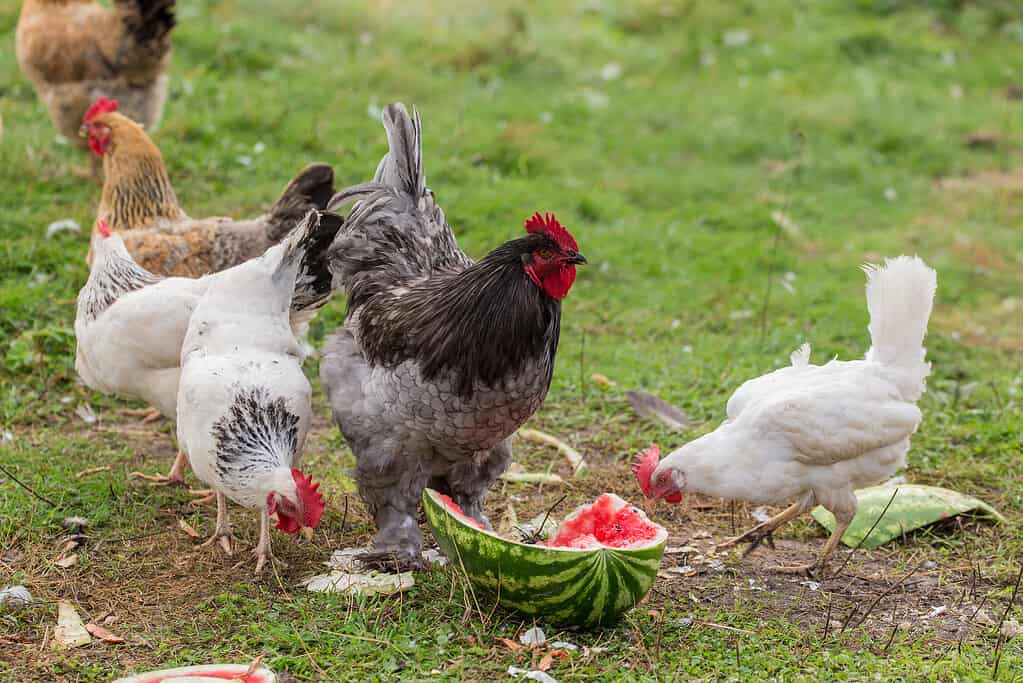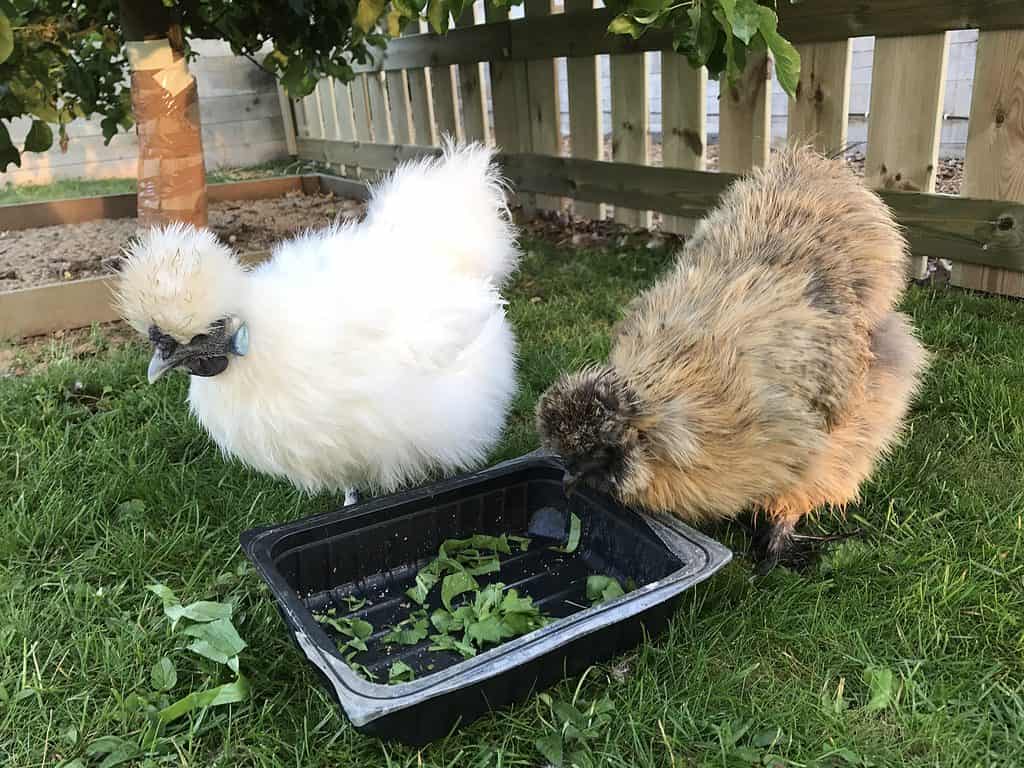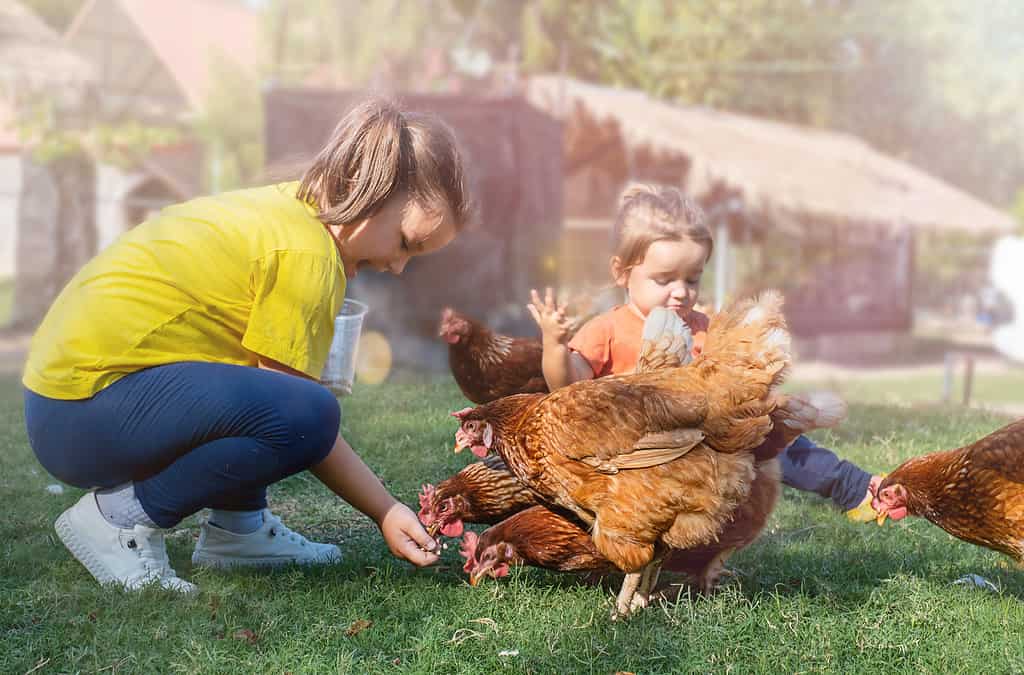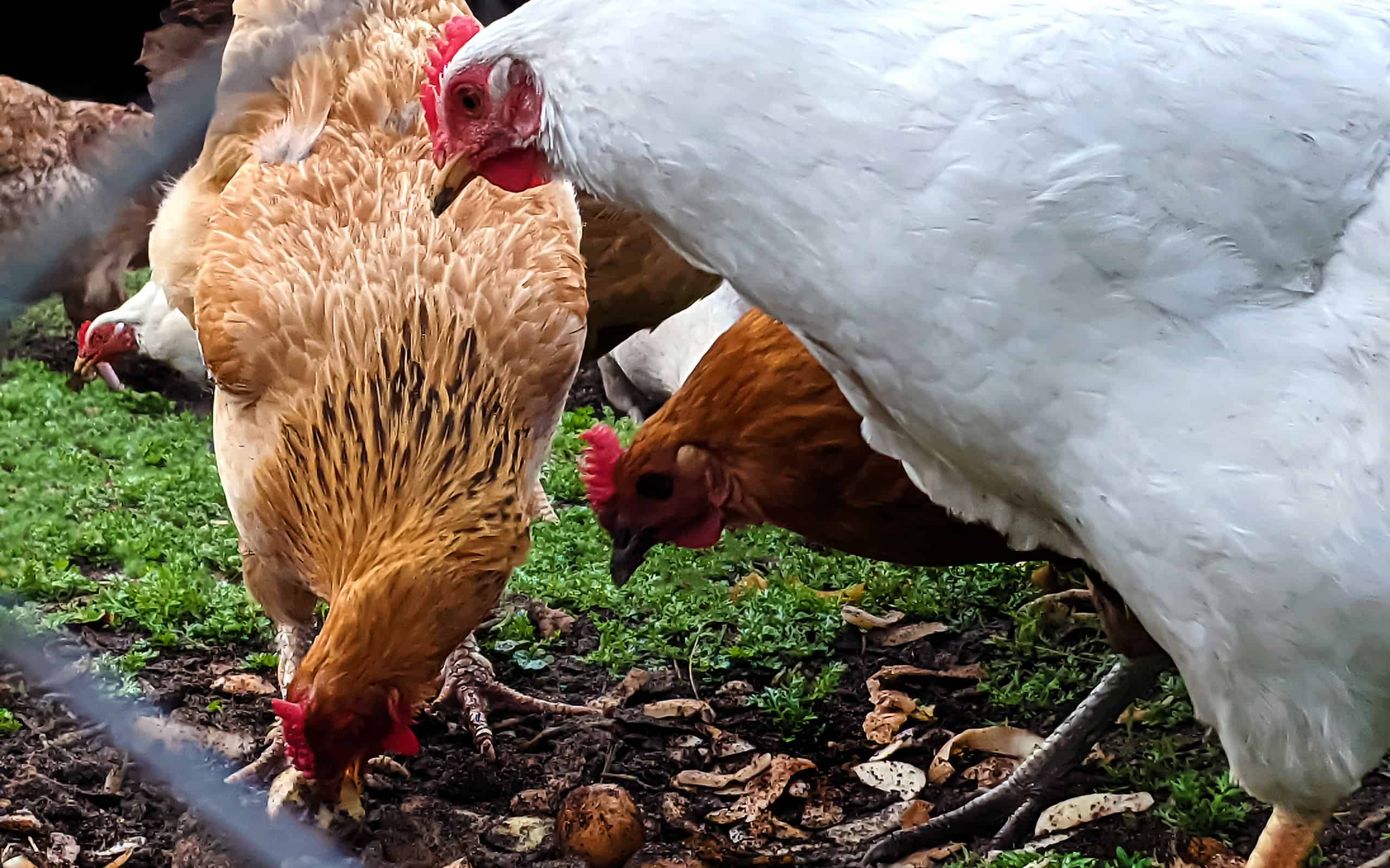When sharing your table scraps, it’s important to know what table scraps chickens can eat and which are unsafe for them. Here, we talk about each and why they are helpful or harmful to have in the chickens’ diet.
Chickens are omnivores, so they will eat just about anything you give them. Adding table scraps to their diet makes a nice treat but should not be the primary food source for your flock. A balanced chicken feed should always be available for your flock. Additionally, you should wait until your birds are three or four months old before introducing table scraps to their diet. By following these two rules, you can avoid nutritional deficiencies in your flock.

Chickens love melons of all types, including the rinds and the seeds.
©Argument/iStock via Getty Images
Grains
Chickens can safely eat various grains, including quinoa, oatmeal, rice, and wheat. They can also eat bread and pasta in moderation, corn, and peas. Rice is also good, as long as it is cooked.
Meats
Your chickens will enjoy cooked meats of all kinds. Just be sure they are cut up small enough for your birds to be able to swallow without choking. Remember, chickens don’t have teeth.
Fruits
Chickens enjoy many types of fruits and berries. Keep in mind that thick peels are difficult to eat. So, skip the peel if you want to give your chickens a banana, or be prepared to clean up whatever doesn’t get eaten and toss them into your compost bin.
Vegetables
Cooked and raw veggies, including cooked potatoes (without the peels) and tomatoes, are a real treat for chickens. They will also enjoy greens like kale or lettuce.
Other Foods
Believe it or not, your chickens will enjoy cat and dog foods as an occasional treat. Just ensure they aren’t stealing these foods from a hungry dog or cat! In most cases, you can also give your chickens weeds pulled from your garden, mealworms, and sprouted grains.
Foods to Avoid

Chickens enjoy greens like kale or lettuce.
©kai foret/Shutterstock.com
While chickens will happily eat just about anything you give them, some foods are unsafe and can make them sick.
Things to avoid include processed or fried foods and foods with added salt. You should also skip chocolate, caffeine, alcohol, avocado skin and pits, potato peels, dried beans, rhubarb, and raw meats.
Avoid nightshade leaves, including tomatoes, potatoes, eggplants, and peppers. Foods that are spoiled or moldy should not be fed to your chickens.
Additional Feeding Tips

Chickens can safely eat various grains, including quinoa, oatmeal, rice, and wheat.
©Valeriia Kuznetsova/iStock via Getty Images
If you decide to feed your chickens table scraps, ensure that they aren’t more than about 10% of the chicken’s diet. Too many table scraps can lead to nutritional imbalance.
Feed scraps later in the day when your flock has already had plenty of their normal diet. Clean up any scraps that your chickens don’t quickly eat. If these foods are left out, they can attract unwanted animals that may carry disease or be dangerous to your flock.
Some foods, like fish or garlic, may be okay to feed in moderation, but they can also affect the flavor of the eggs you get from your flock. You may want to avoid these if you have chickens for egg production.
Make sure anything you feed your chickens is offered in an appropriate feeder. Food thrown on the ground can become contaminated by chicken dropping, making your chickens sick.
Thank you for reading! Have some feedback for us? Contact the AZ Animals editorial team.








